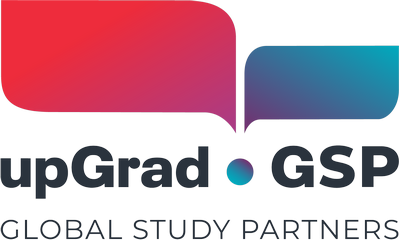In August, the Australian government announced the National Planning Level (NPL) – a plan to cap international enrolments to 270,000 in the calendar year. The cap applies to “new student commencements,” and is divided between the higher education and vocational education and training (VET) sectors. In its initial proclamation, the government listed several cohorts that shall be exempted from the NPL. Since then, the government has published factsheets on these exemptions. Here’s a quick overview of some important details.
Exempted student cohorts
Exemptions from the NPL have been made in consideration of the unique circumstances of certain cohorts of students and Australia’s international engagement, particularly with countries in the Indo-Pacific region. Exempted student cohorts include:
Primary and secondary school students
Primary and secondary school students hold a student visa to study at an Australian primary or secondary school. They will be exempted from the NPL.
Standalone English-language course students
Australia has a strong reputation as an English language study destination. Many foreigners come to the country to pursue an English Language Intensive Course for Overseas Students (ELICOS) to develop their language skills to undertake further study.
Students studying standalone ELICOS will be exempted from the NPL. Examples of ELICOS include:
- General English (GE)
- English for specialised purposes (ESP)
- exam preparation
- secondary/high school preparation (S/HSP) or English for Academic Purposes (EAP).
Note that to be categorised as ELICOS, the program must be solely or mostly English language instruction and provided to an overseas student. There are other types of English language courses available, but if they’re not offered to foreigners, they’re not classified as ELICOS.
Higher degree by research students
Higher degree by research students are those studying for a qualification that is a Research Master or Doctorate and who enrol in a secondary university course to support their work.
These students contribute to Australia’s research goals and efforts and support the country’s national priorities. They also contribute to international efforts to solve current problems in society. As such, the country will exempt them from the NPL.
Non-award course students
Non-award course students are those enrolled in a subject or unit typically offered as part of a course of study, instructional or tuition program, or training course. However, in this case, the student’s learning isn’t being undertaken by such parameters.
Non-award course students include study-abroad and short-term exchange students. These enrolees facilitate meaningful cross-cultural exchange and create valuable alumni networks. Thus, they will be exempted from the NPL.
Department of Foreign Affairs and Trade and Defence-sponsored students
Students who are sponsored by the Department of Foreign Affairs and Trade or the Department of Defence are not considered overseas students. This is according to the Education Services for Overseas Students Act 2000 (ESOS Act). These students are excluded from the NPL.
Students affected by provider closure or loss of accreditation
If a student’s existing education provider is unable to deliver their course (e.g., if the provider closes or loses their accreditation) the student may move to another provider (under circumstances within the ESOS Act). In this case, the student will be excluded from the NPL.
Exempted students of Transnational Education Programs
Australia is a global leader in transnational education (TNE). To support this sector’s growth, the government is proposing to exempt certain eligible students participating in TNE programs.
To be exempt from the NPL, transnational higher education programs must meet the following criteria:
- The overseas component of study forms part of the delivery of a regulated Australian higher education award, and/or
- The overseas study program is co-delivered by the Australian provider, and the program is registered with the official in-country regulatory authority as an Australian twinning or joint program arrangement, where the student transfers to Australia to gain the Australian award (or vice versa), and
- No more than 60% of the Australian award’s course duration is to be completed in Australia, and
- The arrangement was in place before 1 July 2024, or, for arrangements established after 1 July 2024, has been assessed as eligible for the exemption by the department.
If an arrangement only provides for credit recognition of an overseas qualification, or the program does not lead directly to an Australian higher education qualification, it will not be exempted.
To obtain an exemption for a transnational education program, providers will need to ensure the program is listed as an approved course of study as part of their CRICOS registration. They must also notify TEQSA of their offshore delivery arrangements.
The Department of Education will provide further advice on how providers can ensure that students who are eligible for this exemption are properly identified in the Provider Registration and International Student Management System (PRISMS).
Pacific and Timor-Leste exemption
Pacific and Timor-Leste students will be exempt from the NPL. This reaffirms Australia’s commitment to partnering with the Pacific, emphasising the role of education and training in building connections between the regions. The exemption ensures that these students continue to have access to Australian education pathways.
The following countries and territories are exempt from the NPL:
- Cook Islands
- Federated States of Micronesia
- Fiji
- French Polynesia
- Kiribati
- Nauru
- New Caledonia
- Niue
- Palau
- Papua New Guinea
- Republic of the Marshall Islands
- Samoa
- Solomon Islands
- Tonga
- Tuvalu
- Vanuatu
- Timor-Leste.
Foreign and Australian government scholarship holders’ exemption
In a strategic and economic move, Australia supports foreign governments choosing Australia as a preferred destination for scholars who will play a role in their country’s future development These scholarship awardees will be exempted from the NPL as they will contribute to Australia’s network and the resilience of the nation’s global influence.
To be exempted, foreign government scholarship holders must satisfy the following criteria:
- prospective students must meet university student admission requirements and meet the Department of Home Affairs eligibility criteria for a student visa
- tuition fees must be fully funded by the foreign government
- the exemption would not be contrary to Australia’s foreign policy settings including sanctions regime and international obligations.
Similarly, students receiving an Australian government scholarship, along with recipients of Australia Awards and Australia for ASEAN scholarships, will be exempt from the NPL. These students are expected to help Australia’s partner countries in line with bilateral and regional agreements. Their education shall help them develop the skills and knowledge needed to drive change in their home.
To stay updated on the latest news and visa information in Australia, keep an eye out on this page or get in touch with our business development experts.




